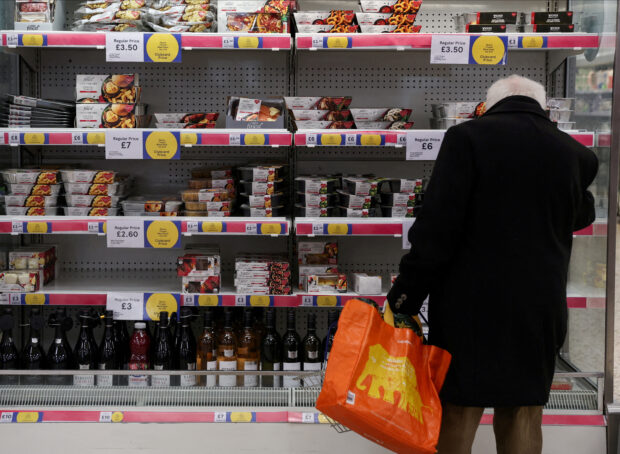
LONDON – BIS Calls for More Interest Rate Hikes Amid Global Economy’s Crucial Juncture
The Bank for International Settlements (BIS), the world’s central bank umbrella body, issued a call on Sunday for additional interest rate hikes. It cautioned that the global economy is at a critical point as countries struggle to control inflation. Despite the continuous increase in rates over the past 18 months, inflation remains stubbornly high in many top economies. Additionally, the rise in borrowing costs has led to the most serious banking collapses since the 2008 financial crisis. According to Agustin Carstens, the general manager of BIS, the time for obsessing over short-term growth has passed. Monetary policy must now focus on restoring price stability, while fiscal policy needs to consolidate.
Claudio Borio, the head of BIS’s monetary and economics unit, added that there is a risk of an “inflationary psychology” setting in. However, the recent larger-than-expected rate hikes in Britain and Norway indicate that central banks are pushing hard to address the problem. Nevertheless, the challenges faced by central banks today are unique compared to post-World War Two standards. This is the first time that a surge in inflation has co-existed with widespread financial vulnerabilities across much of the world.
The BIS’s annual report warns that the longer inflation remains elevated, the more extensive and prolonged the necessary policy tightening will be. It cautions that the possibility of further problems in the banking sector is now significant. If interest rates reach mid-1990s levels, the overall debt service burden for top economies would be the highest in history, according to Borio.
“I think central banks will successfully control inflation, which is their job – to restore price stability,” Borio stated in an interview with Reuters. “The question is what the cost will be.”
Banking Crises and the Need for Action
The recent annual meeting of the BIS saw top central bankers discussing the turbulent last few months. Reports show that a number of U.S. regional banks, including Silicon Valley Bank, failed in March and April. Additionally, Credit Suisse required emergency rescue. Historically, about 15 percent of rate hike cycles trigger severe stress in the banking system, with the frequency increasing considerably when interest rates rise, inflation surges, or house prices sharply increase. The BIS report suggests that very high debt levels, along with a remarkable global inflation surge and the significant increase in house prices during the pandemic, check all the boxes for potential banking crises.
The BIS also estimates that the cost of supporting aging populations will increase by approximately 4 to 5 percent of GDP in advanced and emerging market economies over the next 20 years. Without government belt-tightening, this could push debt levels above 200 percent and 150 percent of GDP by 2050 in advanced and emerging market economies, respectively, and potentially even higher if economic growth rates decline.
In addition to discussing the economic situation, Agustin Carstens emphasized the need for policymakers to act. He stated, “Unrealistic expectations regarding the degree and persistence of monetary and fiscal support that emerged since the Great Financial Crisis and COVID-19 pandemic need to be corrected.”
The BIS believes that achieving a soft or soft-ish economic landing, where interest rates rise without triggering recessions or major banking crashes, is still possible but challenging. Bank of America analysts have calculated that there have been 470 interest rate hikes globally over the past two years, compared to 1,202 cuts since the financial crash.
The U.S. Federal Reserve has raised rates by 500 basis points from near-zero, while the European Central Bank has increased rates in the euro zone by 400 basis points. Many developing world economies have done even more. Yet, there remains uncertainty regarding what additional measures will be necessary, especially as companies seize the opportunity to boost profits and workers demand higher wages to preserve their living standards.
Claudio Borio stated, “The easy gains have already been achieved, and the final stretch will be more challenging.” He referred to the difficulties that central bankers face in reeling inflation back to safe levels. “I wouldn’t be surprised if there were more surprises,” he added.
Stay Updated with the Latest News!
Subscribe to our newsletter to get access to the latest news and information. With INQUIRER PLUS, you can enjoy The Philippine Daily Inquirer and over 70 other titles, share up to 5 gadgets, listen to the news, download articles as early as 4am, and share articles on social media. Call 896 6000 for more information.
Denial of responsibility! SamacharCentrl is an automatic aggregator of Global media. In each content, the hyperlink to the primary source is specified. All trademarks belong to their rightful owners, and all materials to their authors. For any complaint, please reach us at – [email protected]. We will take necessary action within 24 hours.

Omprakash Tiwary is a business writer who delves into the intricacies of the corporate world. With a focus on finance and economic landscape. He offers readers valuable insights into market trends, entrepreneurship, and economic developments.

